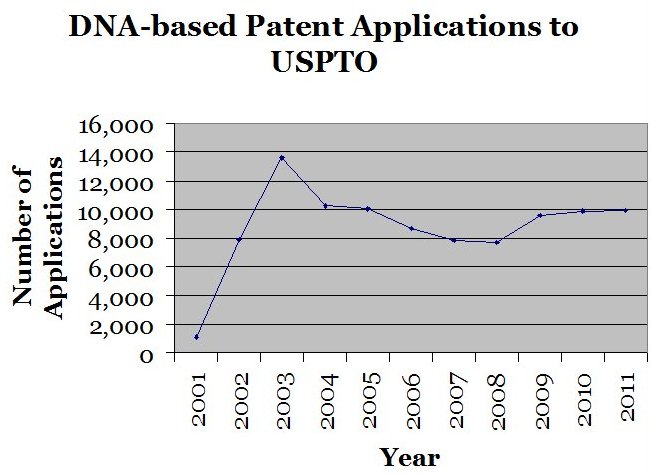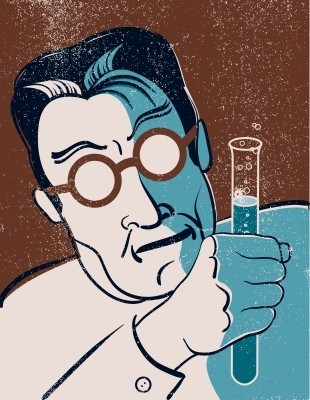Above, the graph shows that since the early 2000's, applications for DNA patents to the U.S. Patents and Trademark Office (USPTO) have leveled off, perhaps due to the fact that scientists have realized patents are not very useful.
Or maybe, DNA patents actually produce a helpful competitive environment. They may also not be effective enough to cause trouble, a sort of harmless threat to science and the public.
In a survey, more than 90% of respondents didn't
even check if a gene-related device they were using was patented. In subsequent
interviews, one scientist, summarizing many views, said "If
I do my research and don't make money, even if I broke the law,
nothing would happen to me. I am just doing research for the public.” This suggests that many scientists who work with genes do their jobs because they enjoy their professions, not because they seek money.
Researchers concluded that “'patent thickets' or an 'anticommons' rarely
affect the research of academic scientists."
Instead, respondents generally agreed that scientists should be more worried
about intellectual property rights in general, something they feel needs to be addressed better.
(28)
As costs for DNA sequencing become significantly lower, a patent would not be much use, since any individual could sequence a "patented" gene without the company having any means of finding out. (22) Since 2001, patents for genes have dropped off, as scientists have apparently realized that they are not readily enforceable, in the face of stricter regulations governing patent filing and courts overturning many patents. Furthermore, many gene patents are expiring without being renewed. Thus, many would argue that patents on DNA are not very effective anyways, so are not an obstacle towards research and public access. In response to moral and ethical arguments on patenting genes, it can also be argued that such patents do not actually give the owner control of the actual genetic information. Patents only give a very limited scope of control over the gene's product when it has been isolated from its natural environment. Also, to further support gene patents, some say that patents can offset the costs to researching genes, so that it is possible to receive private funding for these efforts. It could serve as a healthy incentive for producing better products. (17) | "If I do my research and don't make money, even if I broke the law, nothing would happen to me. I am just doing research for the public." |

